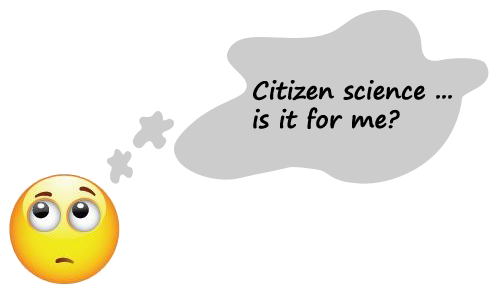 The UKEOF-funded report Understanding Motivations for Citizen Science included a useful summary of the factors that either encouraged or discouraged people to take part in citizen science projects. The table below is adapted from the original table.
The UKEOF-funded report Understanding Motivations for Citizen Science included a useful summary of the factors that either encouraged or discouraged people to take part in citizen science projects. The table below is adapted from the original table.
Thinking about how your citizen science project is organised ...
| These factors were listed as encouraging by volunteers |
These factors were listed as discouraging by volunteers |
|
 |
 |
|
|
Needs to be immediate, specific and interpretable information that explains the usefulness of participants' records |
Volunteer feedback | Must avoid being slow or late, inconsistent feedback. Organisers need to thank participants or at least acknowledge receipt of data |
| Offer volunteers regularly online updates, forums, newsletters and social media. For offline communications, meetings in person and printed newsletters are great |
Communication between projects and volunteers |
Must avoid bombarding participants with emails or one-way communication only. |
| Provide a dedicated website with research findings, highlight the bigger picture, peoples' contributions and how data made a difference | Impact and outputs | Must avoid outputs that are incomprehensible |
| Offer volunteers with training sessions and skills development so they feel skilled/prepared | Volunteer training / education | Must avoid volunteers feeling unprepared or as little more than a 'sensor' |
| Know your participants' interests and what people love. Make your volunteers feel valued/useful | Get to know your volunteers | Avoid your volunteers feeling that they are being used |
| Be sure to measure the benefits/impacts of the project in ways that your volunteers understand | Volunteer benefits | Avoid creating a project that is too focussed on stakeholder benefits |
| Create a well-organised and functioning project | Project organisation | Avoid any sense that the project is disorganised or lacking coordination |
| Ensure people are able to move from a passive to a more active role | Citizen scientist career | Must avoid too few opportunities to progress within the project. Make links to other opportunities elsewhere |
Thinking about the personal dispositions of your volunteers...
| These factors were listed as encouraging by volunteers |
These factors were listed as discouraging by volunteers |
|
 |
 |
|
| The project satisfies a person's motivations to take part in citizen science | Volunteer motivations | The project does not satisfy a person's motivations |
| An individual has access to resources (money, etc.) enabling them to take part | Funding | A person cannot afford to travel to sites or access technology |
|
When a project is flexible enough to accommodate diverse personal barriers |
Personal circumstances |
When personal barriers cannot be overcome, e.g. he/she is already over-committed; the weather; an inflexible employer; health issues; personal inclination; family commitments; bureaucracy; age; lack of time |
| When participation becomes about being in the company of others | Enthusiasm | When there is little opportunity to share one's interest with others |
| Meeting like-minded people | Networking / social factors |
Doing the activity alone; a lack of opportunities to meet people (even if only occasionally or online) |
| The more time a person spends participating in citizen science, the more likely they are to continue | Length of time | Projects that require one-off involvement (although this does not always discourage citizen science participation) |
Smiley faces from Webdesignhot and used under the terms of CC BY 3.0